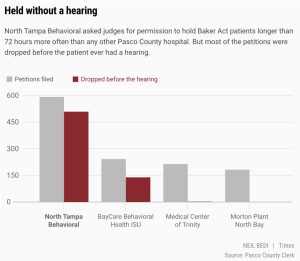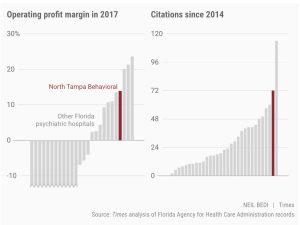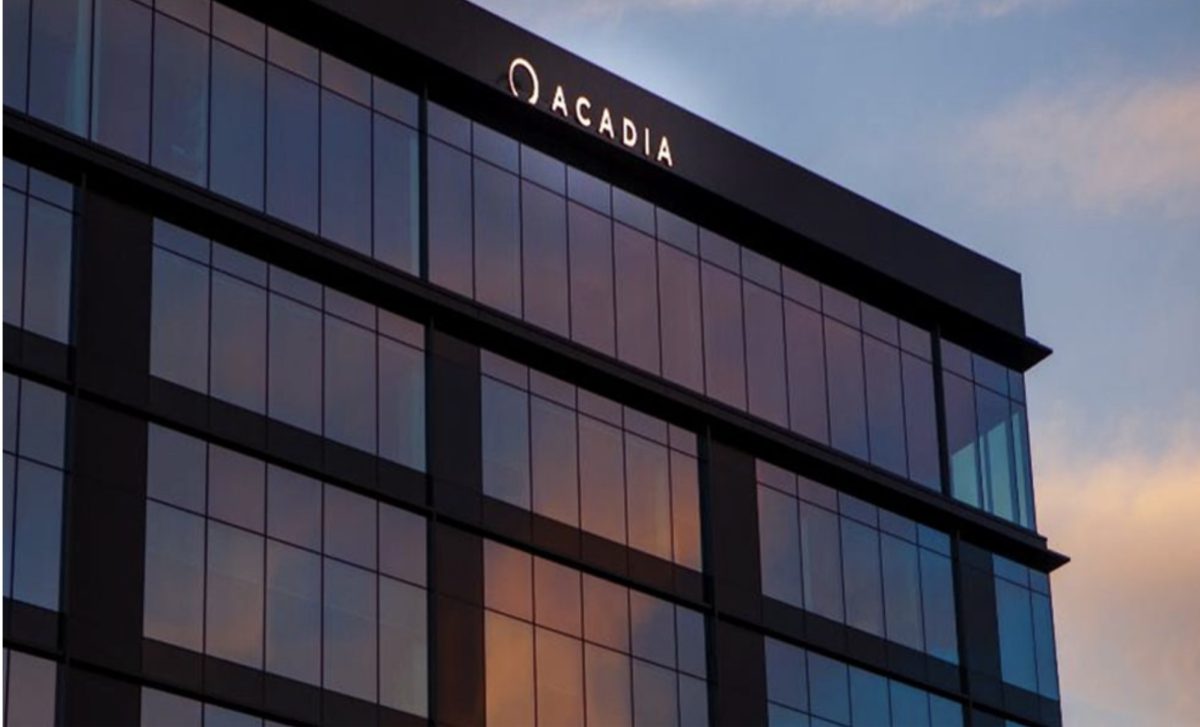In the earliest psychiatric hospitals, dubbed “insane asylums,” labeling conditions as “poor” would be a gross understatement. Patients were forced to go through horrific treatments, including electric shock therapy; bloodletting; even lobotomies, a cruel practice in which part of the brain is cut out. Back then, when it came to society’s most vulnerable and ill, the disadvantaged were treated worse than the most brutal prisoners. When light was eventually shed on the terrifying conditions and mistreatment in these mental health facilities, reform and change were promised.
Today, mental health hospitals are advertised as safe havens that embrace everyone. Old photographs of rooms filled with filth and misery have been replaced with pictures of bright, spotless rooms. The cruel treatments that have haunted patients of the past have been long banned.
But, not everything has changed.
Acadia Healthcare, one of the largest psychiatric hospitals in the country, confines dozens of known patients within its walls to maximize profits from their insurance money. It takes measures like advertising to patients “skip the E.R.” with walk-ins, as well as building relationships with law enforcement and emergency responders to nudge them to bring patients to the hospital. Additionally, Acadia Healthcare sends their staff to overwhelmed emergency rooms to determine whether or not patients need to be hospitalized— sometimes detaining them even when it wasn’t medically necessary.
Recently, social worker Kathryn MacKenzie shared her personal experience with Acadia. All she wanted was to get her bipolar medication adjusted. But, Acadia ended up holding her against her will for several days, forcing her to pay them thousands of dollars for treatment that she didn’t even need. For many Americans, they can’t afford this kind of treatment. But behind the doors of Acadia Healthcare, they have no choice.
The hospital chain does anything they can to keep their patients from leaving their doors. They use the law against inpatients, using the guise that the patients pose a danger to themselves or others. Employees are trained to use buzzwords like “combative” to prove to insurers that their patients needed to stay for longer periods of time. In some instances, Acadia forces patients to stay in the hospital until a lawsuit is filed and a court orders a release.
More than half of the profits Acadia Healthcare makes are from government issued insurance, such as Medicare and Medicaid. With the hospital charging more than $2,000 per day, Acadia fraudulently increases its profits by keeping patients for even just a few extra days. In fact, in North Tampa Behavioral, a subsidiary of Acadia, holding all the patients for just one extra night generates the hospital 1.4 million dollars.
Under the Baker Act, a law that’s meant to protect patients and those around them, hospitals are allowed to keep patients who are deemed a threat to themselves for up to three days — forceful detainment for any longer requires court approval. North Tampa Behavioral circumvents the law by filing petitions to keep patients longer.
But, when the court date draws closer, the hospital drops the petition entirely, doing this for 86% of its filed petitions. Using these kinds of practices to dodge legal restrictions, Acadia frequently holds patients until they’re no longer financially capable of generating revenue for the hospital – that is, until their insurance runs out.

Acadia Healthcare’s unlawful practices have cost more than taxpayer money and insurance: it has cost lives. In fact, the chain of psychiatric hospitals hasn’t even been doing its job of helping patients. Many people report being held in poor conditions with inadequate care which isn’t a surprise considering that government investigations have found that Acadia Healthcare has a “dangerously low” amount of medical staff and has failed to provide therapy. Patients are the ones who suffer the impacts with some receiving no treatment.
Robert Allen was one such patient. After being sent to North Tampa Behavioral, he wasn’t given the clothing his family packed him, being forced to wear a single hospital gown for multiple days. He wasn’t even given his hearing aids.
But the hospital’s biggest concern was his lack of participation in group therapy; Group therapy. When he couldn’t hear.
While this kind of negligence should be an extreme and utterly abnormal case, at Acadia Healthcare, it is not.
Many others have experienced sexual and physical abuse: unmonitored suicidal patients hurt themselves with two patients hanging themselves in 2016. It’s clear that whatever care Acadia Healthcare tries to provide, it’s simply not enough.

This is the second investigation that Acadia Healthcare has faced—the second time it has come under scrutiny and public pressure. The first time, Acadia Healthcare paid nearly $20 million in fines for charging patients with medically unnecessary treatments. For a large hospital chain that generates billions of dollars every year, this punishment isn’t even the equivalent to a slap on the wrist.
For the sake of vulnerable mental health patients across the country, more must be done to stop the unlawful practices of these psychiatric hospitals. There must be more restrictions preventing this from happening again., and there needs to be calls for more investigations and enforcement behind these laws to ensure that they are being followed. Because, in the end, if these corporations aren’t restrained by the law, there’s nothing that can stop them from harming innocent and vulnerable patients.


